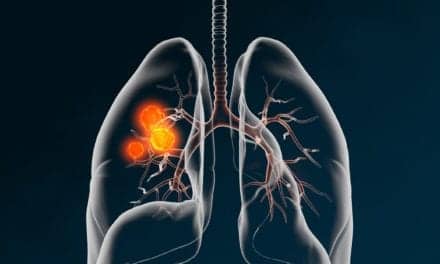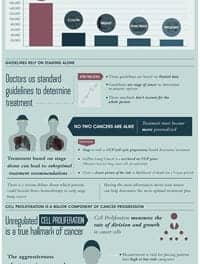Summary: Scientists have developed a low-cost, fast-response sensor capable of detecting lung cancer biomarkers from a blood sample in just 40 minutes, offering potential for early diagnosis and precision treatment.
Takeaways:
- The sensor detects two key lung cancer biomarkers — NSE and CEA — with clinically relevant accuracy.
- Results from testing demonstrate its promise as a valuable tool for early detection and monitoring during treatment.
- Its low cost and speed may revolutionize lung cancer screening, improving survival rates through prompt intervention.
Scientists have created a new low-cost, fast response sensor to detect lung cancer biomarkers, paving the way for the development of screening devices to spot the disease even before symptoms occur. Similar in design to glucose monitoring devices, the sensor provides results from a blood sample in just 40 minutes. The technology has the potential to be used by clinicians to both identify patients at higher risk of lung cancer, and tailor treatments for those already diagnosed in a “precision medicine” approach.
Three-Year Research Project
In the three-year research project, Mahdi Arabnejad a former PhD student at Cranfield University, Sam Tothill, PhD, professor of Bio-Nano Sensors, and Iva Chianella, PhD, senior lecturer in Bio-sensors and Functional Polymers, developed the sensors to screen for two proteins in a blood sample and demonstrated the concept in a lab environment.
The study focused on developing highly sensitive sensors for two key lung cancer biomarkers: neuron-specific enolase (NSE) and carcinoembryonic antigen (CEA). The sensors were tested with buffer and human samples, and achieved clinically relevant detection limits for both NSE and CEA.
Lung Cancer Discovered Early and Accurately
The results indicate the technology has significant promise as a valuable tool in the early and accurate detection of lung cancer.
The simple and quick test means that clinical staff can use the sensor to identify people with a higher risk of lung cancer, and refer them for further testing. This proactive approach enables early detection, which can improve outcomes. The test can also be used whilst patients are in treatment to track how chemotherapy, for example, may be addressing the cancer.
“At the moment lung cancer screening tests can be expensive and take a long time. Although it’s early stages, the sensor we have developed holds great promise of early detection, which can lead to prompt treatments with higher patients’ survival rates,” says Chianella.
The research paper Impedimetric Biosensors for the Quantification of Serum Biomarkers for Early Detection of Lung Cancer is published in Biosensors 2024, 14, 624.
Featured Image: Iva Chianella, PhD, senior lecturer in Bio-sensors and Functional Polymers, was among the team that developed the sensors to screen for two proteins in a blood sample and demonstrated the concept in a lab environment. Photo: Cranfield University




